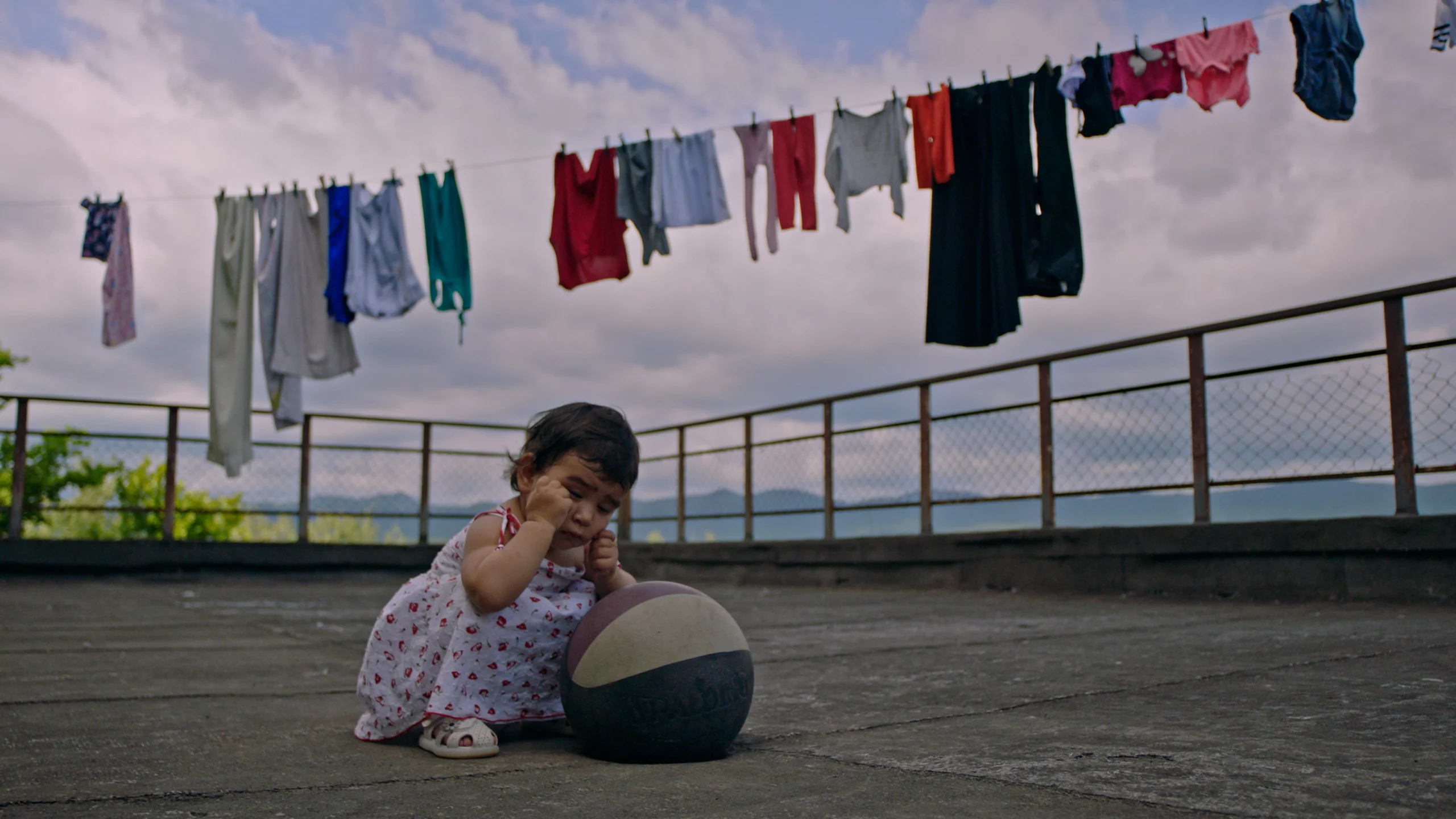Slamdance Film Review: On the Way Home
Film Reviews
Slamdance Film Review: On The Way Home
Director: Giorgi Kvelidze
Antares Films
Premiere: 01.20.24
As soon as Giorgi Kvelidze began working on commercial sets in New York, he knew he wanted to be a filmmaker. However, he didn’t realize that his passion would lead him back to his home country of Georgia, telling the stories of displaced Georgians after the Abkhazia conflict in the early 1990s, a war fought between Georgia and former Soviet-era Abhkahzians backed by Russian armed forces. “I knew there were refugees living in the town of Tskaltubo,” he says. “And when I saw two kids playing with a soccer ball in a shattered glass courtyard and a guy smoking a cigarette by himself with deep and sad eyes, I was like, ‘This story should be told.’”
Kvelidze’s documentary film On The Way Home focuses on two refugees in particular: Iamze, an elderly woman who was forced to move out of her home during the conflict, losing her son because of the fighting; and Nikusha, a 12-year-old boy who’s known no other life but living as a refugee, while still navigating the challenges of a regular young boy. They both stay in a formerly luxurious sanatorium where people had come to rejuvenate and relax in the past. Now, it is their only connection to safety and survival as they wait to receive access to government housing and the chance to have a normal life and home. Even though Kvelidze’s film clocks in at a meager 62 minutes, cinematographer Josh Braunreuther captures impressive imagery of the beautiful landscape and the decrepit sanatorium these people all live in, as well as edited archival footage of what the sanatoriums were used for and the type of people that came to use them, including the infamous Russian dictator Joseph Stalin.
Now, these refugees have an opportunity to gain new housing through government-provided apartments, but not everyone is eager to give up their place at the sanatorium. “They got very used to living there for 30 years, and now some of them don’t want to leave even though they’ve got new apartments,” Kvelidze says. The film expresses the point that many of the younger people are excited to be moving into a new place, but many older residents are hesitant because they’ve been displaced from their original homes. Now they are displaced again, in a way.
The film also does an excellent job of showing what people’s lives are like as refugees. They may not have much, but they make do with what they have. In Nikusha’s case, he has friends and hobbies, he goes to school remotely (since the filming took place during the COVID-19 pandemic) and has dreams of seeing his mom. She doesn’t live with him, but works in Turkey to try to earn money and provide for her children.
Unfortunately, these stories are not uncommon, both in Georgia as well as other places around the world. On the Way Home focuses on two very specific individuals as refugees, but their stories are universal for other displaced individuals. “It happened in Georgia in 1992, again in 2008. Now it’s happening in Israel and Palestine, it’s happening in Ukraine,” Kvelidze says. “I want people to feel empathy and see that these people exist, and it is reality. They’re next to us; it doesn’t matter where we are. We’re all humans and we should raise awareness for refugees around the world.”–Eric Ray Christensen
Read more of SLUG’s comprehensive coverage of the 2024 Slamdance Film Festival.
